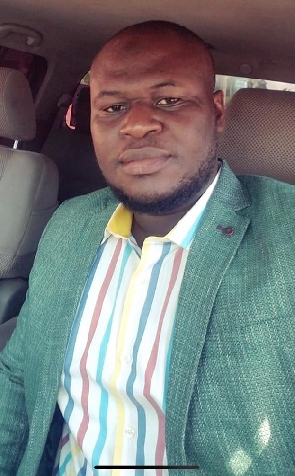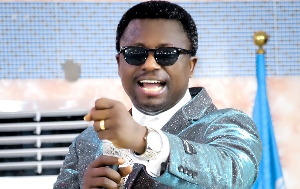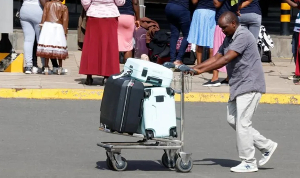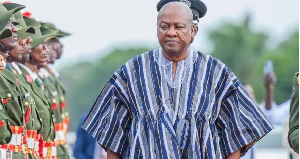Over a year and some months, the war between Russia and Ukraine, continue to redefine international and foreign relations of countries across the globe. More particularly, bilateral relations between global giants and some emerging powers are withering.
The Russian and Ukraine war has not only affected the global economy as recorded by poor and middle-income countries but also threatens bilateral relations between countries that are either pro NATO or Pro BRICS. Whichever way one looks at it, the world still suffers.
Following months of intense fighting the world has been divided into three groups, the pro Ukraine, that is largely countries that are members of the North Atlantic Treaty Organization (NATO) and the BRICS that has its members as Brazil, Russia, India, China and South Africa and the nonaligned countries, properly so called. The nonaligned countries are those countries that claim they have not supported either party to the conflict between Russian and Ukraine. South Africa is in a particularly difficult situation due to the fact that it was reported to have supported Russia with weapons, an allegation that it has denied.
Between June 02nd to 5th 2023, BRICS intends to host its first summit on the soil of Africa in South Africa. Experts have divided opinions that the AU is the target of the BRICS, most especially the African economy and African non-member countries.
However, the international Criminal Court (ICC) has issued an arrest warrant on President Vladimir Putin over alleged war crimes in Ukraine and is calling on South Africa to arrest him when he jets down in Johannesburg to attend the all-important BRICS summit later this week.
South Africa is under pressure to kowtow to the demands of ICC but President Ramaphosa’s government remains firm and focused, exploiting all manner of loopholes in international law to ensure that President Putin receives a diplomatic welcome among his colleagues. The South African government has said it will extend its Diplomatic Immunity and Privileges Act to all international officials who plan to attend the august summit within its territory.
As a signatory to the ICC, South Africa may be obliged by law to arrest Putin if he sets foot in the country; however, it is important to note the Russian claim that it is not a signatory to the ICC hence it does not fall within the remit of ICC to issue an arrest warrant seeking to get its President arrested.
Speaking Tuesday, Kremlin spokesman Dmitry Peskov said "Russia attaches enormous importance to the development of this (BRICS) format of integration. And Russia will take part in this summit at the proper level." Russian officials had previously said that Putin had been invited to attend the summit.
"Of course, we count as a bare minimum on partner countries in such an important forum not to be guided by such illegal decisions," Peskov responded when pressed on the possibility of Putin being arrested at the summit. Russia, which like the U.S. is not a signatory to the ICC, has always dismissed the international court's indictment of Putin as a baseless and illegal move.
Ordinarily, leaders that are covered by diplomatic privileges and immunities are protected from all manner of international arrests and prosecutions just as diplomats are protected while they carry out their diplomatic duties under international law.
How will Africa benefit from the BRICS?
Brazil, Russia, India, China, and South Africa: the BRICS nations have sought to enhance cooperation and promote economic growth, particularly among themselves. While the impact of BRICS on Africa's economy can vary depending on several factors, here are some key points to consider:
Trade and Investment: BRICS countries have increased their trade and investment ties with Africa over the years. They have become important trading partners for many African countries, particularly in the sectors of natural resources, infrastructure development, and manufacturing. This increased trade has led to economic benefits for Africa, such as foreign direct investment, job creation, and technology transfer.
Infrastructure Development: BRICS countries have shown interest in financing and supporting infrastructure projects in Africa. China, in particular, has been involved in significant infrastructure investments across the continent through initiatives like the Belt and Road Initiative. These investments have helped improve Africa's transportation networks, energy systems, and industrial facilities, thereby fostering economic development.
Market Access: the BRICS nations provide African countries with alternative markets for their goods and services. This diversification of trade partners reduces dependence on traditional markets and can contribute to economic stability and growth. Additionally, the BRICS countries' large consumer bases offer potential opportunities for African exporters to tap into new markets.
Development Finance: the BRICS countries have established financial institutions like the New Development Bank (NDB) and the Asian Infrastructure Investment Bank (AIIB) to provide funding for development projects. These institutions can offer African countries alternative sources of financing for infrastructure, agriculture, healthcare, and other sectors. By accessing these funds, African nations can address critical development challenges and stimulate economic growth.
Knowledge Sharing and Capacity Building: the BRICS nations have initiated various platforms for knowledge sharing and capacity building. These platforms facilitate exchange programs, technical cooperation, and academic collaboration between BRICS countries and Africa. Such interactions enable African nations to learn from the experiences of BRICS nations and acquire valuable knowledge and skills to enhance their own economic development.
It's important to note that while the BRICS nations can offer significant opportunities for Africa, there are also potential challenges. These include the risk of economic dependence on a few countries, unequal trade dynamics, infrastructure-related debt concerns, and the need for effective governance and transparent practices to ensure the equitable distribution of benefits.
Overall, the impact of BRICS on Africa's economy has been a mixed bag, with both positive contributions and potential challenges. The extent of the impact depends on various factors, including the policies implemented by African governments, the nature of trade relations, and the ability to leverage investments and partnerships effectively.
While it is evident that Africa benefits from BRICS, the countries that constitute NATO have also made a lot of interventions in Africa to demonstrate their interest in the continent.
Clearly, the two powerful economic giants are locked up in a global power struggle while spreading their tentacles to outperform each other on the status of their membership, alliances and currencies in use.
Experts and critics have observed that BRICS nations place a greater premium on their people-power agenda over super-power titles; they make extreme value-creation economic models over focusing on powerful military industrial complexities; they focus on nation building and avoid special mandates in the management of global affairs; as population-rich nations they show greater interest in feeding hungry mouths, constantly up-skilling, and improving value creation for their SMEs; finally, they keep a steady watch to create multilateralism to uplift humankind (Javed, 2023).
In conclusion, South Africa is not on record to have condemned the war between Russia and Ukraine but has elected to remain strategically neutral to the detriment of her relations with pro Ukraine countries like USA, etc. As an economic “Big Brother of Africa”, her strategic neutrality and diplomatic soft spot for Russia and Putin, tell it all.
Opinions of Thursday, 1 June 2023
Columnist: Osman Iddrisu Banpuori















